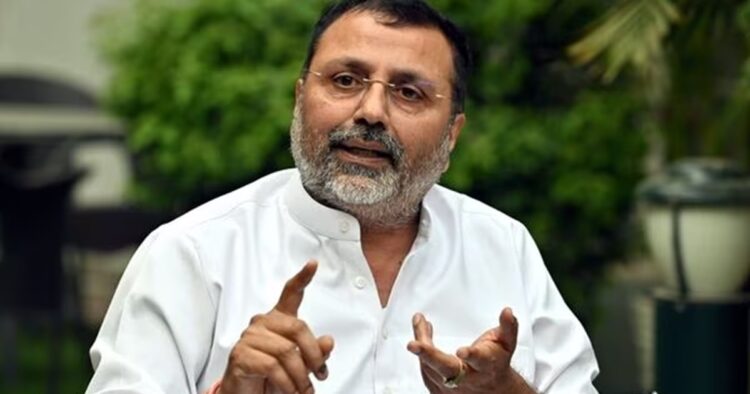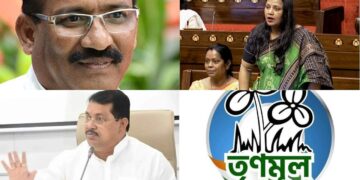In a recent discussion in the Bharatiya Parliament, BJP Member of Parliament Nishikant Dubey stirred controversy with his remarks on the country’s political history and alleged corruption by opposition leaders.
Dubey labeled the period between 1947 and 1990 as the ‘licence-permit raj’, characterizing it as a time of heavy government regulation and bureaucracy. He then dubbed the years from 2004 to 2014 as the ‘loot raj’, implying widespread corruption during the Congress-led government’s tenure.
During the debate on the ‘White Paper’ on the Bharatiya economy, Dubey praised the period from 2014 to 2029, when the BJP was in power for two terms, as ‘Ram raj’. This term, borrowed from Hindu mythology, suggests an era of righteous governance.
In a fiery speech, Dubey accused former Prime Minister Manmohan Singh of being restricted in his authority and unaware of government decisions during his tenure. He also alleged corruption involving a relative of a prominent Congress leader, triggering strong reactions from the opposition.
Dubey further claimed that several Congress leaders were implicated in the Adarsh society scam, where regulations were purportedly flouted for personal gain. He accused the Congress of ignoring recommendations to combat corruption during their rule, contrasting it with the Modi government’s swift action in implementing anti-corruption measures.
Highlighting the issue of illicit money, Dubey alleged the existence of a corridor funneling funds from Bangladesh to Jharkhand to sway a particular political party’s agenda, which he claimed focused solely on securing the Muslim vote bank.
Dubey’s remarks sparked a heated debate in the Parliament, with opposition members refuting his allegations and accusing the BJP of politicizing corruption issues. The exchange underscores the deep political divisions and ongoing scrutiny of governance and accountability in India’s political landscape.

















Comments